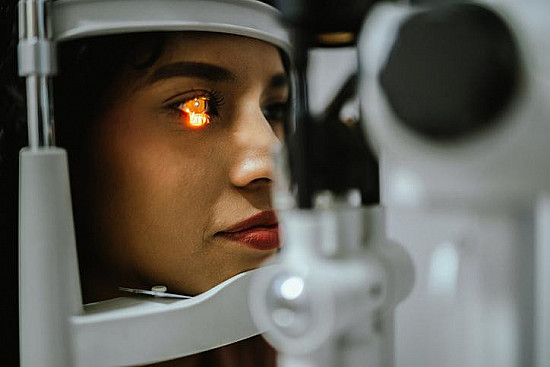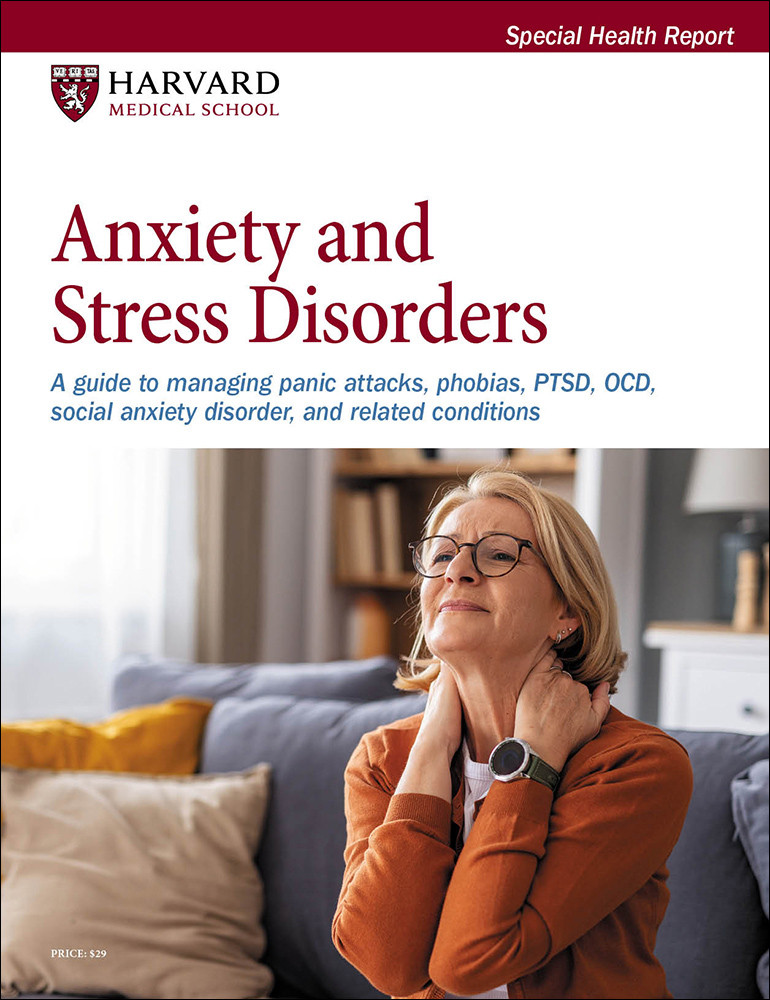When fear strikes the heart: Post-traumatic stress disorder
New research reveals the connections between PTSD and cardiovascular disease.
- Reviewed by Christopher P. Cannon, MD, Editor in Chief, Harvard Heart Letter; Editorial Advisory Board Member, Harvard Health Publishing

Experiencing or witnessing deeply disturbing events — natural or human-made disasters, serious accidents, or violent acts — is surprisingly common. Over a lifetime, these and other traumatic events will touch the lives of up to seven in 10 adults in this country. While only some will go on to develop post-traumatic stress disorder (see "Understanding PTSD"), these people are especially vulnerable to cardiovascular problems, according to a recent review.
Published in August 2024 in Current Problems in Cardiology, the analysis pooled findings from 20 studies involving a total of more than 335,000 people. PTSD was linked to a 40% higher risk of heart attack and a doubled risk of stroke.
Understanding PTSDMention PTSD, and people immediately think of war veterans. But this potentially debilitating mental health condition can affect people of all ages who have experienced any kind of trauma, including disasters such as Hurricane Katrina, the 9/11 terrorist attacks, car accidents, sexual assault, and gun violence, for example. It's normal to have upsetting memories, feel on edge, and have trouble sleeping after a disturbing event. But if symptoms last more than a few months, you might have PTSD. Key symptoms include
About 11% to 20% of veterans who served in Iraq or Afghanistan have PTSD. Among the general population, the condition affects an estimated 4% of men and 8% of women. The National Center for PTSD offers a brief self-screening test that can help you decide whether to seek more information and help. |
Brain activity imbalance
In a separate study, psychologist Dr. Antonia Seligowski, who heads the MGH Neurocardiac Effects of Stress and Trauma laboratory, and her colleagues used brain imaging and other tests to take a closer look at the connection between PTSD and heart disease. The amygdala, a brain structure involved in processing anxiety, fear, and stress, is overactive in people with PTSD. "But these people also have decreased activity in the ventromedial prefrontal cortex, which is responsible for regulating emotions and dampening the fear response," she says. These two structures communicate with each other and the nearby hypothalamus, which, in turn, sends signals to the brainstem. Located at the base of the brain, this region controls unconscious, automatic responses like breathing and heart rate.
If the prefrontal cortex doesn't pump the brakes on rampant activity in the amygdala, the imbalance leads to chronic activation of the body's "fight-or-flight" response. This not only causes the heart rate and blood pressure to rise but also stimulates the bone marrow to release white blood cells. In the short term, these cells help fight off infection. But chronic or repeated activation of the stress response — a hallmark of PTSD — can persistently elevate white blood cells. The resulting inflammation contributes to atherosclerosis, the buildup of fatty plaque that narrows blood vessels. Chronic inflammation also makes the blood "stickier" and more likely to form clots.
Both brain changes and inflammatory markers appear to influence the association between PTSD and heart attack, stroke, and related problems, according to the study, which was published in the March 2024 issue of Brain, Behavior, and Immunity.
Different ways to tame stress
The good news: Several stress-busting habits may improve both problems. For example, exercise helps your brain as well as your heart by boosting activity in the prefrontal cortex. In addition, recently updated guidelines for treating PTSD recommend mindfulness-based stress reduction. This eight-week program, which includes meditation, body scanning, and simple yoga stretches, may also improve certain heart-related risks such as high blood pressure.
In research funded by the American Heart Association, Dr. Seligowski is studying whether cognitive behavioral therapy can help quiet the body's stress response and lower arterial inflammation in people with PTSD at risk of cardiovascular disease. Her team is also exploring the potential benefits of breathwork, a calming technique that helps ease stress. "We hope to figure out which techniques are best for people with different psychiatric disorders and heart-related risks," she says.
Image: © Elena Merkulova/Getty Images
About the Author

Julie Corliss, Executive Editor, Harvard Heart Letter
About the Reviewer

Christopher P. Cannon, MD, Editor in Chief, Harvard Heart Letter; Editorial Advisory Board Member, Harvard Health Publishing
Disclaimer:
As a service to our readers, Harvard Health Publishing provides access to our library of archived content. Please note the date of last review or update on all articles.
No content on this site, regardless of date, should ever be used as a substitute for direct medical advice from your doctor or other qualified clinician.
















